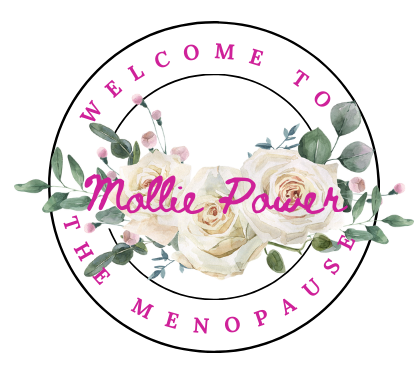
Beyond the well-known hot flashes and sleep disruptions of menopause lies a powerful revelation: this transformative stage is not just about reproductive changes—it is a pivotal moment where a woman’s cardiovascular risk can soar. Menopause, far from a mere transition, unfolds an increased vulnerability to heart-related issues that demand our attention and proactive care.”
The root of this increased risk lies in hormonal changes. Oestrogen, known for its role in reproductive health, also benefits your heart. However, as menopause unfolds, ushering in a decline in oestrogen levels, the once formidable shield on arterial walls weakens. The consequence? A potential surge in ‘bad’ cholesterol, elevated blood pressure, and a stiffening of arteries. These changes can set the stage for heart disease and stroke.
Despite its seriousness, there is often a lack of dialog about the intersection of menopause and heart health. Many assume heart disease is a male issue, while it is the leading cause of death for women. Addressing this misconception is vital; recognising and responding to cardiovascular health post-menopause is non-negotiable for your long-term well-being.
Understanding this connection empowers you to take charge of your heart health. The positive aspect? There are proactive measures you can adopt to mitigate these risks. By turning your attention to lifestyle adjustments, “Even amidst the hormonal transitions of menopause, you have the power to bolster your heart health.”
Proactive Measures: Lifestyle Adjustments for Optimal Heart Health During Menopause

Your heart deserves unwavering attention, especially as you transition through menopause. With the right lifestyle choices, you can make significant improvements in maintaining cardiovascular health.
Prioritising a nutritious diet is crucial. Embrace a well-balanced eating plan filled with fruits, vegetables, whole grains, and lean proteins to fortify your heart health. Opting for high-fibre foods to regulate cholesterol and include omega-3 fatty acid-rich options like certain fish for optimal heart function. Minimise processed food consumption and be mindful of your salt intake to maintain healthy blood pressure levels.”
Never underestimate the power of physical activity. Whether it is a brisk walk, a dance class, or yoga, getting your body m “Don’t overlook the transformative impact of physical activity. Whether you are strolling through the park, dancing to your favourite tunes, or embracing the serenity of yoga, dedicating at least 150 minutes a week to move your body is not just beneficial—it is essential. Engaging in regular exercise isn’t just about staying fit; it’s your key to managing weight, keeping blood pressure in check, and fortifying the very core of your heart muscle.”
Stress, the stealthy adversary to heart health, can quietly weave its havoc. Equip yourself with powerful stress-busting tools like deep breathing, meditation, or the graceful movements of tai chi. And never underestimate the healing process of a restful night’s sleep—it is not just a reprieve for your mind, but a rejuvenating tonic for your heart.
Taking charge of your well-being through consistent screenings is pivotal. Keep a vigilant eye on vital health indicators like blood pressure and cholesterol levels. Through proactive monitoring, your doctor can unveil potential concerns early on, guiding you toward timely adjustments and a personalised care plan tailored for your optimal health.
Navigating Treatment and Management Options
Navigating menopause requires understanding the treatments and management strategies that can influence heart health. One option that often comes up is hormone replacement therapy (HRT). While it can alleviate some menopausal symptoms, its effects on cardiovascular health are complex. It is important for you to discuss with your doctor whether HRT is a viable choice for you, considering the potential benefits against any risks to your heart health.
Beyond HRT, there is a range of alternative therapies and dietary supplements claiming benefits for heart health during menopause. Be cautious. It is crucial to base choices on scientific evidence and professional advice, weighing up benefits and the risks associated with each option.
Effective management of menopause and heart health is not a one-size-fits-all situation. Collaborating with healthcare professionals is key to developing a personalised plan. This includes not just your primary care physician, but also a cardiologist, a dietitian specialised in postmenopausal health, and potentially other specialists.
Support does not end with primary care. Cardiac rehabilitation programs, designed to help people recover from heart issues, can also be adapted to support women during menopause. Moreover, joining support groups can offer both emotional and practical guidance, creating a community that understands what you are going through.
Empowerment through Education: Resources and Support for Menopausal Women

I firmly believe that knowledge wields incredible power, particularly when navigating health during menopause. Access to reliable information has the potential to turn uncertainty into confidence. This emphasizes the importance of identifying trustworthy sources – relying on the expertise of medical professionals, reputable health websites, and peer-reviewed journals to stay informed with the latest findings.”
Additionally, I encourage you to build a support network. Connect with others experiencing similar challenges. Support groups, either local or online, can provide comfort and practical advice. They are a platform where experiences are shared and understood without judgment.
‘Elevate Your Heart’s Well-being: Be Your Own Advocate.’ Engage in impactful campaigns and educational programs that spotlight menopausal heart health. Your active participation becomes a ripple of positive influence—nurturing not only your own vitality but also contributing to a shared knowledge pool that lights the path for others.
Fuel your journey with knowledge and connection. At WelcomeToTheMenopause.com, we are crafting an online community where stories are shared, experiences are understood, and every woman finds a supportive space amidst the nuances of menopause.
Stay vigilant and stay knowledgeable. The medical arena evolves swiftly, unveiling breakthroughs that transform heart care during and after menopause. Staying attuned to these advancements equips you with the knowledge to make informed decisions, hand in hand with your healthcare provider.
In conclusion, navigating menopause with a focus on cardiovascular care is a journey that demands diligence, education, and a supportive community. You hold the power to navigate this life stage with resilience and elegance, and it all begins with taking charge of your heart health through reliable information and the camaraderie found in our vibrant community.”
Welcome to a World of Empowerment at Welcome to the Menopause. Our website is not just a space; it is a vibrant community where women unite to share experiences, decode menopausal mysteries, and build a collective haven for understanding.
Share Your Thoughts Experiences with Us!
We love hearing from our readers! If you’ve just finished reading our latest post, we invite you to share your thoughts, insights, or personal experiences related to the topic. Your perspective adds richness to our community, and we can’t wait to learn from your unique viewpoint.
Feel free to leave a comment below and connect with fellow readers. Let’s build a vibrant community together!
Happy sharing!
